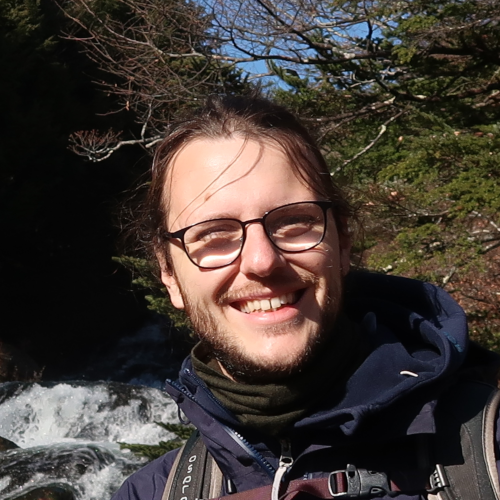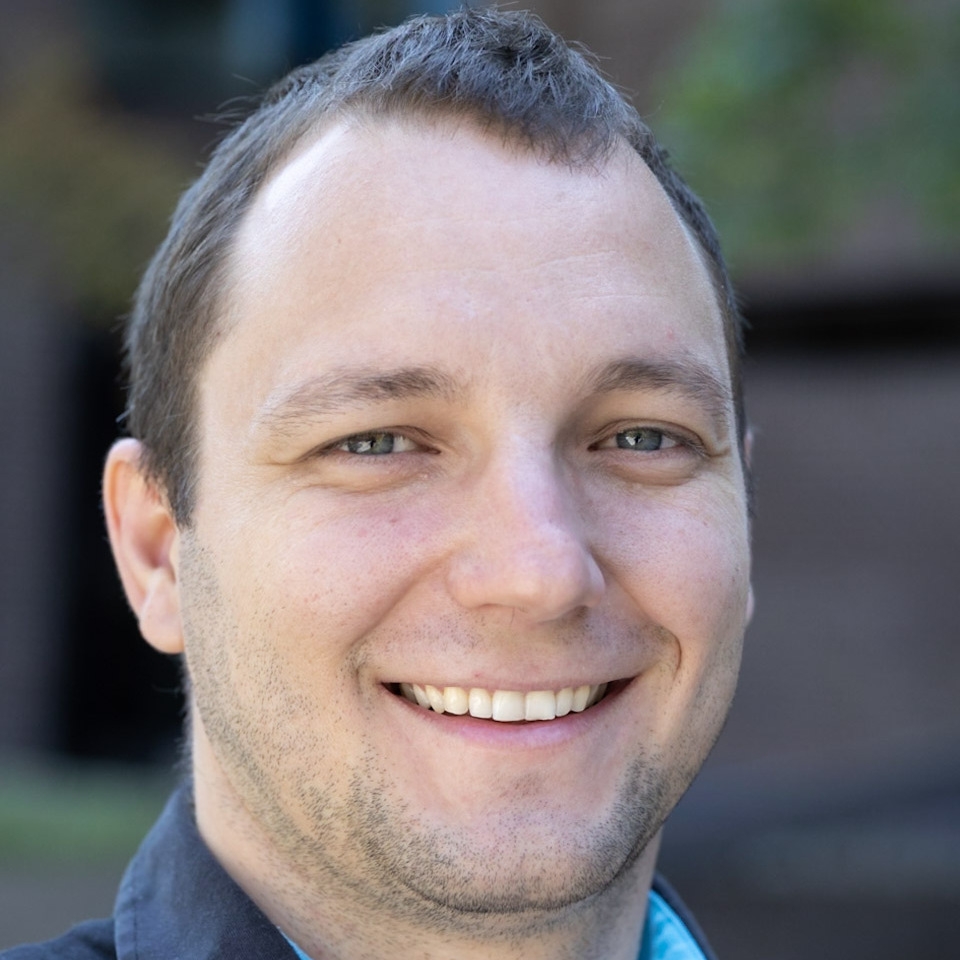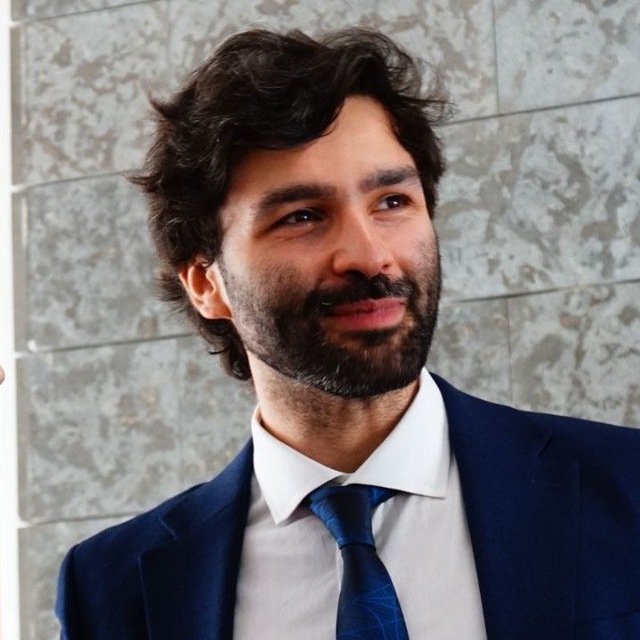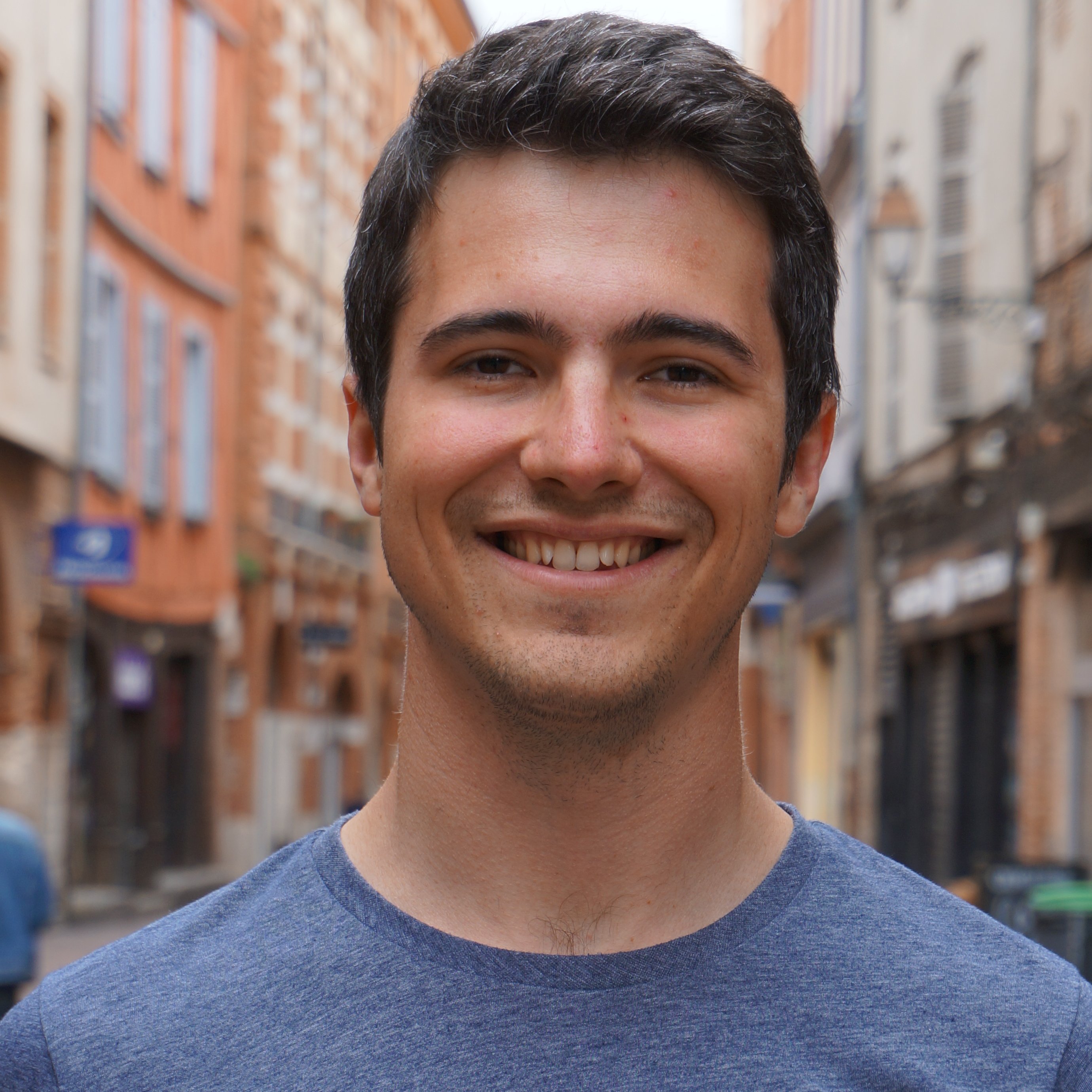Bertrand Bellenot
Bertrand was primary working in Aluminum industry as process engineer, developing software for data acquisition, data analysis, statistical process control (SPC) and for X-Ray spectrometry. He has been involved in ROOT development since 2001 by porting ROOT to Windows. Bertrand is a member of the ROOT development team at CERN since August 2005. He's currently working on GUI (Graphical User Interface), core (mainly Windows support), and JavaScript Root (JSROOT).
Danilo Piparo
Danilo is a particle physicist and scientific software enthusiast. He leads the ROOT project since 2023. He was a member of the ROOT team from 2013 to 2019 and contributed to many of its areas, including I/O, core, math and statistics. He rejoined the ROOT team in 2023 after leading for four years the Offline Software and Computing group of the CMS experiment at CERN. Danilo is also a lecturer and Advisory Committee member of the CERN School of Computing.
Devajith Valaparambil Sreeramaswamy
Devajith (or just Dev for short) joined CERN and the ROOT team as an Early Career (Origin) Graduate in December 2023. He graduated with an MSc in Computing from Cardiff University. Currently, he works on ROOT's built-in C++ interpreter, CLING, and extending its support for SYCL execution.
Enrico Guiraud
Enrico is a physicist turned computer scientist. His first experience at CERN was as Openlab summer student in 2015, during which he worked on multi-process analysis interfaces for ROOT. In 2016, he graduated cum laude from the Department of Physics of the University of Milan. His master's degree focused on statistical physics and computational methods for physics. He stably joined the ROOT team in 2016, first as a computer science doctoral student, funded by the Wolfgang Gentner Scholarships programme, and then as a CERN fellow. His most relevant contributions have been in the performance and programming model of ROOT's data analysis interfaces, and he is author and current maintainer of RDataFrame.
Florine de Geus
Florine joined CERN and the ROOT team as a technical student in November 2022 where, as part of the ATLAS experiment, she worked to evaluate and further develop ROOT's new I/O subsystem, RNTuple, so it can be used as effectively as possible for the experiment's analyses. She graduated from the University of Amsterdam with a master's degree in Software Engineering. As of January 2024, Florine is continuing her work on RNTuple as a PhD student at CERN and the University of Twente.
Giacomo Parolini
Giacomo's first interaction with CERN was during his bachelor degree thesis, where he developed a small framework to perform remote analysis on the data of the ATLAS 2012 run. He studied at the University of Milan, where he got his bachelor's degree in Physics (2012) and his master's degree in Computer Science (2018). He then started his professional career in videogame development, working for Ubisoft Milan as a gameplay programmer and later for Gaijin Entertainment as a graphics programmer. Since May 2024 he works as a R&D software engineer on the ROOT I/O team.
Jakob Blomer
Jakob joined CERN for the first time as a summer student in 2007. He graduated from the University of Karlsruhe and obtained a PhD in computer science from the Technical University of Munich. Jakob works on distributed systems and storage software. He created the CernVM File System, which he evolves ever since. Jakob has been a Marie Curie fellow and a visiting scholar at the RAMCloud research group at Stanford University. In the ROOT team, Jakob works on the columnar data storage for event data, searching for ever faster and more robust ways to read and write hierarchically nested ntuples.
Jonas Hahnfeld
Jonas graduated with a M.Sc. in Computer Science from RWTH Aachen University and joined CERN as a Junior Fellow in November 2020. In the EP-SFT group, he works on GPU-related topics in ROOT and the simulation R&D subgroup.
Jonas Rembser
Jonas is a particle physicist with a strong interest in high-performance computing and data science. For his Ph.D. from the École polytechnique in Paris, he worked for the CMS experiment at the Large Hadron Collider on electron reconstruction and multiboson analyses. Jonas joined the ROOT team in 2021 as a senior fellow to work on RooFit support and development. He aims to speed up RooFit with modern technologies such as heterogeneous computing on GPUs and automatic differentiation. He further improves the RooFit experience with modern C++, updates to the Python bindings, and enhancements to the higher-level statistical tools such as HistFactory.
Lorenzo Moneta
Lorenzo started working in 1989 as an experimental physicist for the ALEPH experiment working for data analysis and software event reconstruction. He graduated in Pisa in 1990 and he received his Ph.D. in particle physics in 1994 at the University of Florence. Afterwards, since 1997, he was working for data analysis of the CDF experiments and online software for the ATLAS experiment. In 2002 he joined the physics application software group of CERN, and since 2005 he joined the ROOT team with the responsibility of the Math work package, which provides development and support for the ROOT mathematical and statistical libraries.
Marta Czurylo
Marta obtained her M.Sc. in Physics from University College London. She continued as a Physics PhD student in the ATLAS experiment at the University of Heidelberg, working on the di-Higgs analysis. Marta graduated in 2023 and joined the ROOT team as a Fellow soon after. Her main role is developing and maintaining the RDataFrame.
Monica Dessole
Monica graduated from the Mathematics Department of the University of Padua, where she also received her Ph.D. in Computational Mathematics in 2022 with a thesis on numerical linear algebra algorithms targeting massively parallel archirectures. She joined ROOT in 2023 as a senior fellow to speed up linear algebra computations with modern technologies such as heterogeneous computing on GPUs and performance portability with SYCL.
Olivier Couet
Olivier Couet received a Physic's Master from the Strasbourg University and a Master’s Degree in Engineering from the Ecole Nationale Supérieure de Physique de Strasbourg (ENSPS) on work in computer graphics and image processing in 1985. He then performed his Ph.D work (in Computer Graphics) at the Laboratoire D'Annecy le Vieux de Physique des Particules (LAPP) on the PAW project. He has been employed by CERN since 1988. He was one of the main authors of the PAW system, more precisely its graphical components (HIGZ and HPLOT). HIGZ has been the standard graphics package in High Energy Physics for years and is still being used. He was responsible for the PAW system from 1995 until he joined the ROOT team in 2002 and took responsibility of the graphics work package.
Philippe Canal
Philippe Canal has been working in the FNAL Computing Division since 1995. Philippe graduated from Ecole Centrale Paris and has a Master in Computer Science from Northwestern University. Philippe is responsible for the development of the I/O sub-system and the Tree query mechanism and oversee the overall architecture of ROOT. Philippe coordinates the support for ROOT for all FNAL experiments.
Sergey Linev
Sergey Linev was graduated from the Nuclear Physics Department of Belorussian State University, where he also received his Ph.D. in Physics and Mathematics in 1999. Since 2002 Sergey working in GSI - heavy-ion research center in Darmstadt, Germany, developing software for data acquisition and online analysis for different experiments. From 2004 starts contributing to different ROOT components like I/O with XML, SQL, JSON, THttpServer, JavaScript ROOT. Currently is responsible for the development of new web-based GUIs in ROOT like RCanvas, REve, RFitPanel and many others.
Vassil Vassilev
Vassil graduated from the University of Plovdiv Paisii Hilendarski, Bulgaria. He received a MSc in Software Technologies and a PhD in Computer Science with specialization in programming languages and visual programming. He joined the ROOT team in 2010, authoring Cling - the interactive, LLVM-based C++ interpreter. He was one of the core engineers involved in ROOT6. Vassil is responsible for the implementation and adoption of clang's C++ modules (PCMs) in ROOT. He also helps with interpreter and reflection related activities in the ROOT project. He works on the CMS interests in the ROOT collaboration including development, trouble shooting, and any other activities as may be required. From January, 2017, Vassil is employed by Princeton University and part of the Princeton Intel Parallel Computing Center (IPCC) project, which focuses on code modernization in ROOT.
Vincenzo Eduardo Padulano
Vincenzo graduated with a B.Sc. in Physics and a M.Sc. in Data Science at the University of Milano-Bicocca (Italy). He started working at CERN in 2019 in the ROOT team, where he developed his master thesis. He then continued the collaboration as a CERN Doctoral Student enrolled in the Computer Science PhD program at the Polytechnic University of Valencia (Spain). He obtained the PhD title in 2023 with a thesis on distributed computing solutions for the HEP use cases. He is currently working as a post-doc, his area of research is in optimizing distributed computations and developing the next-generation ROOT I/O.
Stephan Hageboeck
Stephan is a particle physicist, and obtained his Ph.D. at the University of Bonn in Germany. He worked in ATLAS in the search for Higgs --> bb decays, and was the maintainer of RooFit in 2019 and 2020, where he paved the way for RooFit with vectorisation and GPUs. From 2021 to 2024, he worked in CERN's IT department on GPU computing. Now, Stephan is back in the ROOT team, working on RDataFrame, GPU computing and analysis interfaces.
Lukas Breitwieser
Lukas Breitwieser is a computer scientists focusing on high-performance and large-scale computing. Lukas successfully defended his Ph.D. at ETH Zurich under the supervision of Onur Mutlu and Fons Rademakers. Before joining the ROOT team, Lukas was the principal software engineer of BioDynaMo. This interdisciplinary and open-source project brings together simulation experts and computer scientists to develop an agent-based simulation platform that sets new standards in terms of performance and scale. Since its inception in 2015, Lukas has been driving the platform's major advancements, particularly focusing on building a scalable and modular simulation engine. The Annual Symposium on Principles and Practice of Parallel Programming recognized this work with the Best Artifact Award. In the ROOT team, Lukas is responsible for an R&D project to accelerate physics data analysis on the GPU.


















